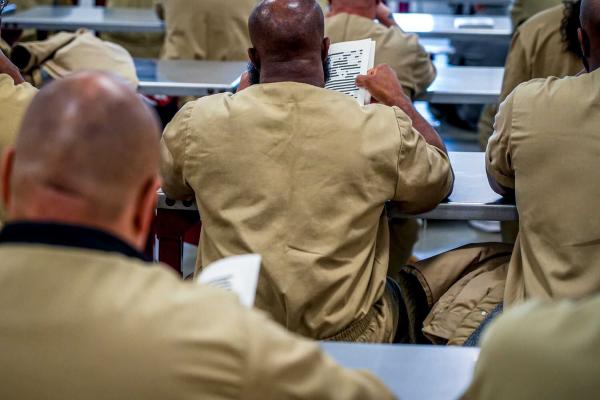In November 2018, an academic acquaintance in Canada phoned me with a dilemma.
This acquaintance turned to me because I had lived for seven years in the L’Arche Daybreak community in Richmond Hill, Ontario. I knew Vanier. I had selected and introduced a 2008 collection of his writings. My next two books, well-researched explorations of the evolution of L’Arche and Vanier’s global influence, were due to be published in 2019, and I was teaching in the religious studies department at St. Jerome’s University in Ontario, often using Vanier’s writing in my courses.
But I also didn’t want to think Vanier was lying. So I created a plausible narrative in my mind: He was so close to his beloved “Père Thomas” that he could not absorb such distressing information — he literally could not hear what the women were saying.
I remembered this call in January, when an independent group of scholars commissioned by L’Arche International released the results of their multi-year study, “Control and Abuse: Investigation on Thomas Philippe, Jean Vanier and L’Arche (1950-2019).” As I read the 900-page report, I’ve been thinking especially about the control aspect.
In 2018, I made up an excuse for Vanier with no evidence because I wanted to believe him.
I share this experience because part of what this 2023 report explores is how any one of us can get drawn into colluding to protect someone. It’s how power and control are perpetuated.
The report also notes that part of control is cutting people off from their wider connections and communities. Most of the stories of abuse in this report happened before the internet, before email, before cell phones. It’s hard to remember how isolating and all-encompassing L’Arche communities could be in those years. If you wanted to tell your friend or parent or sibling about a difficult experience, what could you do? You could write a letter and put it in the mail and wait weeks for a reply. Or you could phone, but long-distance telephone calls were expensive, and there was often only one house phone in the kitchen or hallway where everyone could hear. Each call had to be logged so that each item on the bill at the end of the month could be assigned to the person who made the call. Or you could take a roll of coins and go find an outdoor pay phone. And even then, how to find a vocabulary to describe a disturbing interaction when you had never heard of sexual or spiritual abuse?
“Vanier’s training sessions on authority relationships relied on the loving, confident and enlightened submission of members of L’Arche. This authority relationship was demonstrated by strong interpersonal relationships involving the exposure of one’s intimacy, through the sharing of emotions, intuitions and personal suffering. In all their diversity, and to varying degrees, the relationships of authority at L’Arche were historically marked by this asymmetrical charismatic practice which, under certain conditions, led to abusive power dynamics.”
I cannot say this strongly enough: Sexual abuse is evil. Layering in spiritual abuse is even more profoundly damaging.
However, I spent a decade researching the founding stories of L’Arche and how they evolve over time. I had repeatedly highlighted something that deserves more attention: There was never one authoritative founding story of the first community begun in France in 1964. As Jean-Pierre Crépieux, the fourth core member of L’Arche, explained:
“I would like to say that when one opens a home, one is not alone. If Jean had not known Raphaël Simi, Philippe Seux, Jacques Dudouit and me, he could not have started L’Arche!”
I wish that in 2018 I had been more self-aware in advising my academic caller. I wish I had said, “I don’t know how to think about this. There is a good chance that Vanier is protecting a sexual abuser. Maybe it’s time to stop elevating one person. How about an interdisciplinary symposium about L’Arche in its global variety of cultures and contexts, how it started as a Roman Catholic community then became ecumenical and then interfaith as it spread around the world? Explore the stories of how people in L’Arche, both with and without intellectual disabilities, have together founded communities, each with its own struggles and contradictions and failures and yearnings.”
For better or worse, we are all part of many interlocking stories, whether those are ordinary, exciting, disturbing, or inspiring. Part of the work of peacebuilding is to open our hearts to the many stories around us, especially stories of lives shared across differences.
For more on Vanier and L’Arche, subscribe to the Sojourners podcast Lead Us Not.
Got something to say about what you're reading? We value your feedback!







